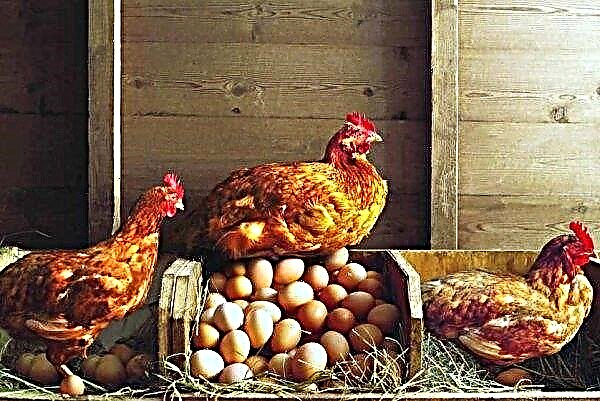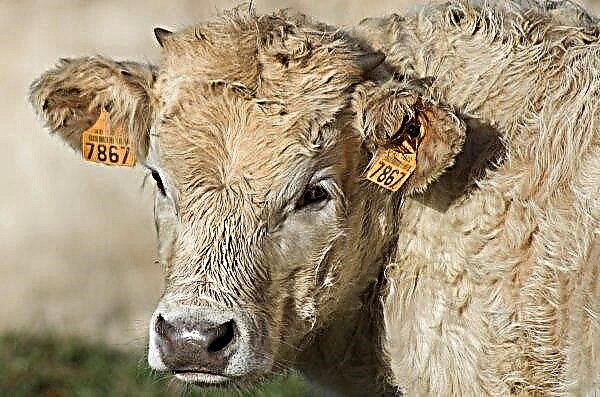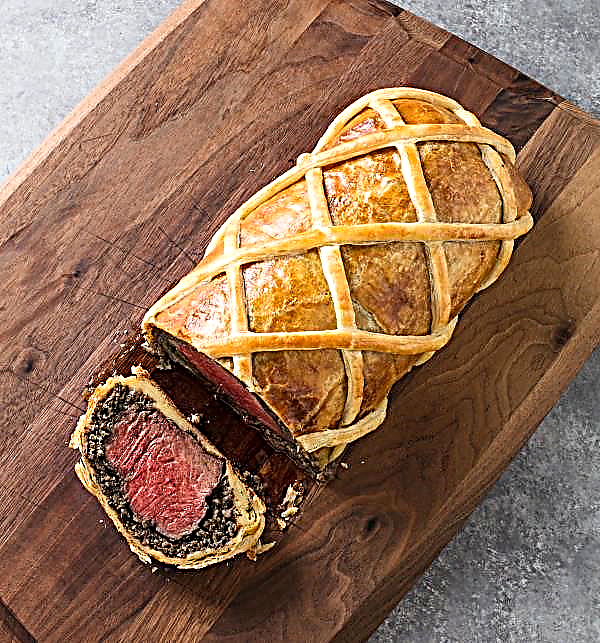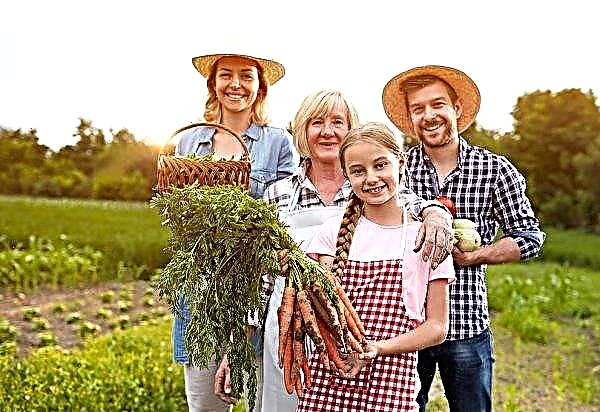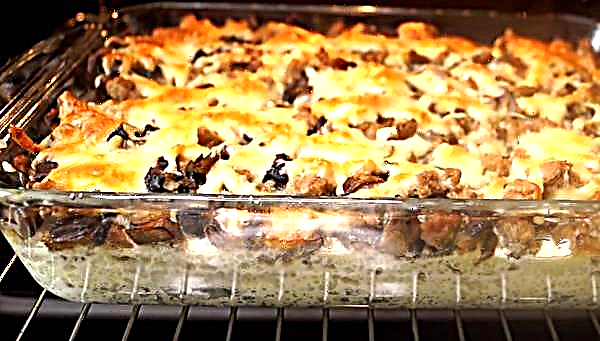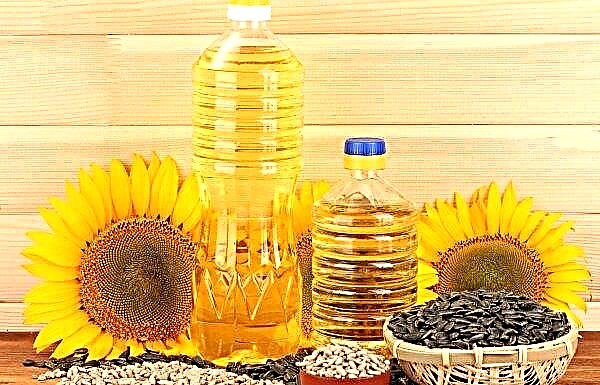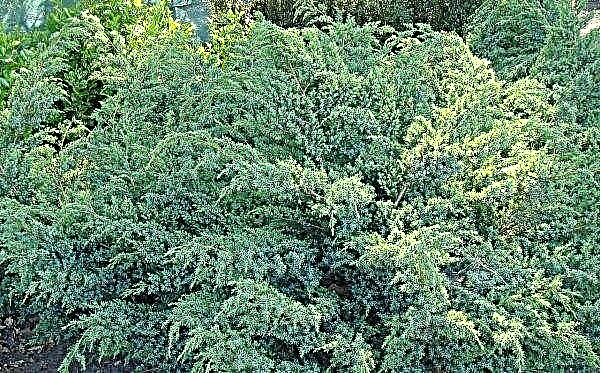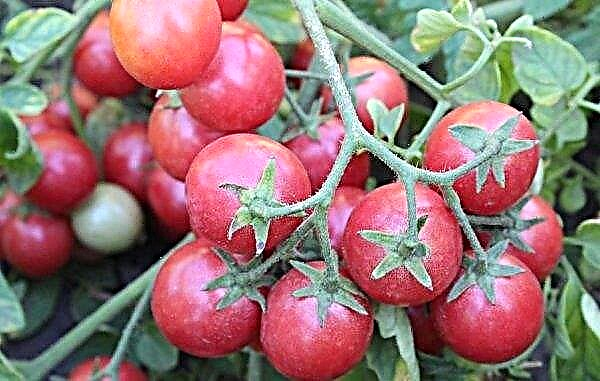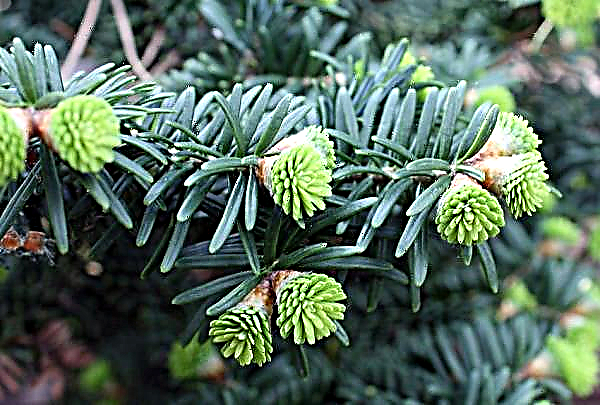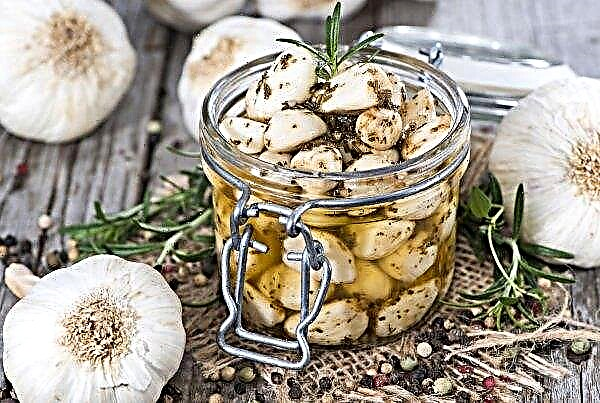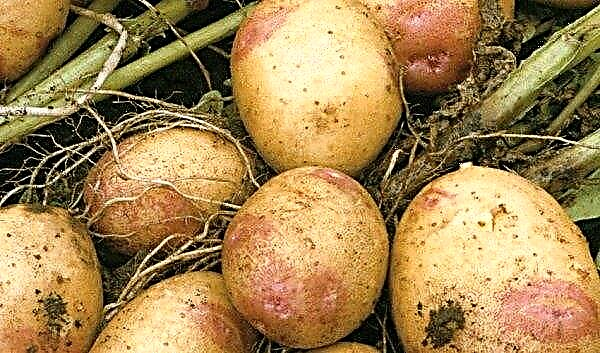The combination of ginger with honey lemon is one of the most popular for the treatment and prevention of colds and viral diseases. This mixture is used for adults and children, preparing drinks according to different recipes. The beneficial properties of the mixture and its application are described below, as well as the proportions for the preparation of products at home.
Properties of ginger, lemon, honey
Each of the products has features of taste and chemical composition, due to which they complement each other's healing properties.
Chemical composition
Ginger root for the preparation of medicinal drinks is used fresh, after peeling.

Ginger in an amount of 100 g provides the body with 80 kcal and has the following composition:
- protein 1.8 g;
- fat 0.7 g;
- carbohydrates 17.8 g;
- potassium 415 mg;
- magnesium 43 mg;
- phosphorus 34 mg;
- calcium 16 mg;
- sodium 13 mg;
- iron 0.6 mg and zinc 0.3 mg;
- copper and manganese at 0.2 mg;
- vitamins C, E, B3 and B6, folic acid.
Lemon is usually added in the form of juice or whole, removing the zest. In some cases, a thin layer of zest is used when brewing tea.

100 g of whole fruit without a peel contains 29 kcal and such components:
- protein 1.1 g;
- fat 0.3 g;
- carbohydrates 9.3 g;
- potassium 138 mg;
- calcium 26 mg;
- phosphorus 16 mg;
- magnesium 8 mg;
- sodium 2 mg;
- iron 0.6 mg;
- zinc 0.1 mg;
- vitamins C, A, E, B3 and B6, folic acid.
Did you know? Lemon juice also has technical uses. In Italy, it was evaporated to a thick state and almost black in color, after which it was used to dye fabrics.
The composition of honey may vary depending on the type of flower nectar. but on average 100 g of bee product contains 304 kcal and includes:
- protein 0.3 g;
- fat 0 g;
- carbohydrates 82.4 g;
- potassium 52 mg;
- calcium 6 mg;
- 4 mg phosphorus and sodium;
- magnesium 2 mg;
- iron 0.4 mg;
- zinc 0.2 mg;
- folic acid.

Taste qualities
Each of the ingredients has a recognizable taste and aroma. Hot ginger, sweet honey and sour lemon, combined in the correct proportion, form a fresh and tonic drink.
Beneficial features
- These products have the following beneficial properties for human health:
- ginger improves metabolism and purifies the blood, stimulates appetite;
- honey has an antimicrobial effect, has a calming and healing effect;
- Lemon is used in the treatment of vitamin deficiency, rheumatism and urolithiasis, it is considered an anthelmintic and a digestive aid. Its antiemetic effect is noted, as well as a positive effect on the cardiovascular system.

All three ingredients have an immunostimulating effect, while ginger destroys harmful toxins that appear during illness during cell breakdown, reducing the burden on the immune system.
Contraindications
The main contraindication is an individual allergic reaction to one of the components of the mixture.
- Also, you should not drink such infusions for diseases:
- cholelithiasis;
- erosion or stomach ulcer, pancreatitis;
- gastritis with high acidity;
- hypervitaminosis;
- cirrhosis of the liver, hepatitis;
- heavy bleeding.
Application
A tasty and healthy mixture is used in the treatment and prevention of colds. This combination of products also effectively helps to lose weight.

With a cold
The ginger component has a significant antipyretic effect, so tea or root infusion with the addition of other components is recommended at elevated temperatures. A mixture with honey and lemon will bring relief from a debilitating cough, as well as a headache that often accompanies the disease.
Important! To preserve the beneficial properties of the product, honey is added only to a drink cooled below + 40 ° C!
As an immunostimulant
To increase immunity, both drinks and vitamin mixtures are used (often with the addition of nuts and dried fruits). To achieve the desired effect, it is necessary to take funds regularly for 1-2 months.

For weight loss
By adjusting your metabolism and adjusting your bowels, these foods help you lose weight. Recommended for diet, recipes are designed to be consumed throughout the day, often on an empty stomach, and contain a minimal amount of calories.
Cooking methods
When choosing the components of the recipe, you need to pay attention to their quality and freshness. It is advisable to purchase natural honey in a proven place, given that in winter or spring it will crystallize naturally. Lemon should be washed thoroughly with a brush in hot water, and when used with a peel, it is better to buy a product labeled “bio”.
Tea brewing

6 (250 ml each) 25 min.
Energy value per 100 g:
- Peel the ginger root and cut into thin slices, cut the lemon with the zest.
- Place all the slices in the brew pan.
- Pour boiling water and cover the container, then insist for about 15 minutes.
- When the liquid cools slightly, add honey to it and mix until completely dissolved. Consume after 10 minutes.

Cooking infusion

3 (100 ml each) 30 min.
Energy value per 100 g:
- Remove the skin from the root and cut it with a knife.
- Pour water into a saucepan and add ginger, heat until boiling and cook for 20 minutes. Remove fire and leave under cover.
- Squeeze lemon juice.
- Strain below 40 ° C and strain through a sieve.
- Add honey and juice to the drink.

Vitamin Blend

2 (250 ml each) 30 min.
prunes, raisins or dried apricots
200 g
Energy value per 100 g:
- Cut lemons into several slices, remove the seeds.
- Clean and wash the rest of the ingredients.
- Grind all components in a meat grinder, if necessary 2 times.
- Introduce honey and mix well.
- Transfer the mixture to a glass jar and close. Put in the refrigerator.

Did you know? To produce 100 g of honey, a bee flies a distance close to the length of the equator (about 46,000 km).
Like seasoning

1 can per 1 liter 30 min.
lemon
2 pcs. (about 400 g)
Energy value per 100 g:
- Pour the lemons with boiling water and wash. Cut into slices, remove the seeds.
- Peel ginger, cut into circles.
- Grind fruit and root together in a blender or meat grinder until smooth.
- Add honey to the mixture. Transfer to a jar.
- Keep seasoning in the refrigerator, use as a sauce for meat or for marinating it.

Use by children
Honey can not be introduced into the diet of children under 1 year of age because of the danger of contracting botulism. If there is no allergy to components, the total amount of honey for a child per day should not exceed:
- 1-2 tsp for children from 1 to 3 years old;
- 1-2 tbsp. for children from 3 to 12 years old.
The use of ginger root is recommended from 3 years. If the baby does not have a pronounced tendency to food allergies, you can try lemon from 2 years old, and for allergy sufferers - from 5 years old.
Important! The first intake of therapeutic drinks or mixtures should consist of a minimum portion, after which the body's reaction is monitored during the day.
Using the above recipes and recommendations, you can reduce the likelihood of colds and viral diseases, as well as facilitate their course in children and adults. Useful and aromatic medicines are easy to prepare in your own kitchen.

